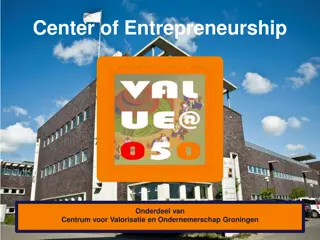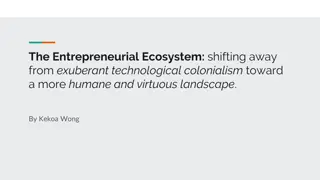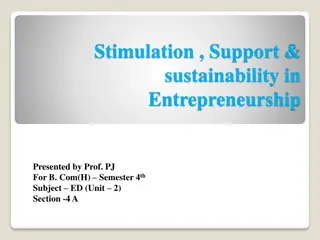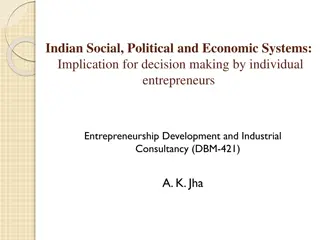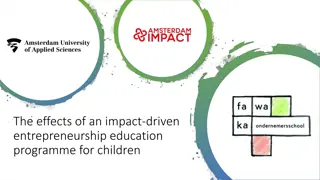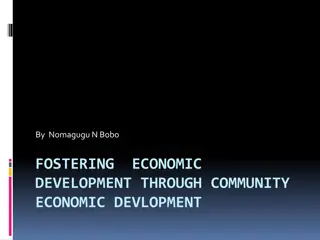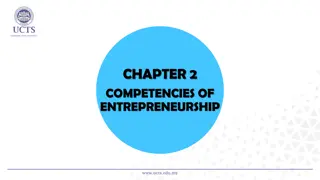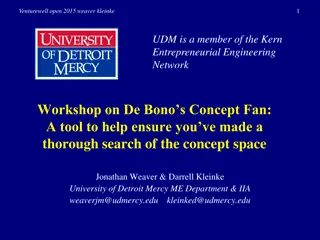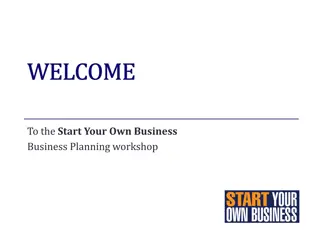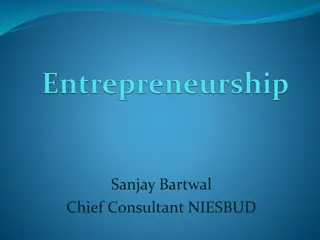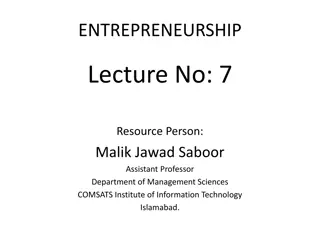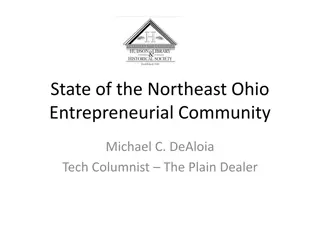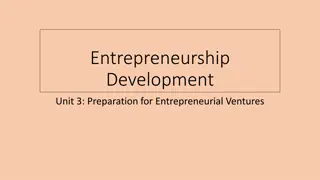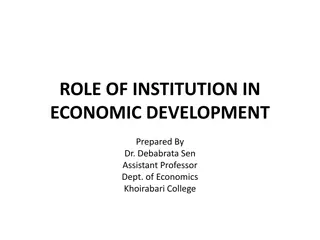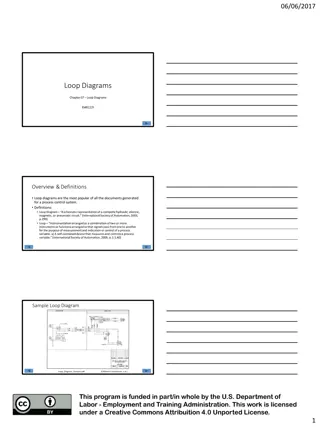Understanding Entrepreneurial Cultures and Economic Development Through University Connections
Exploring how entrepreneurial cultures drive entrepreneurial action by connecting universities to economic development. The discussion covers topics such as identifying gaps, motivations, current regional states, and the role of culture in fostering entrepreneurship. Various perspectives, economic development aspects, culture development inputs and outputs, Charlotte's approach, interest areas, and the critical role of entrepreneurs in sustainability are analyzed. Entrepreneur development factors are also highlighted, emphasizing the importance of entrepreneurial mindset and intention for startup success.
Download Presentation

Please find below an Image/Link to download the presentation.
The content on the website is provided AS IS for your information and personal use only. It may not be sold, licensed, or shared on other websites without obtaining consent from the author. Download presentation by click this link. If you encounter any issues during the download, it is possible that the publisher has removed the file from their server.
E N D
Presentation Transcript
How Entrepreneurial Cultures Spur Entrepreneurial Action Connecting Universities to Economic Development UNC Charlotte ADVANCE Bridging the Gap Conference March 19, 2013 Ken Harrington
What is Your Regions Current State?
Two Perspectives Pick winners-Ventures & Inputs(Eco Devo) Energize people-Social Connections & Relationships (Culture)
Economic Development 1. Resource and Infrastructure Inputs Research as an input Infrastructure Capital 2. Economic Outcomes Ventures Investment Jobs
Culture Development 1. Culture Inputs Collaboration events Relationships Institutions, especially technology transfer 2. Culture Outputs Ideas Entrepreneurs Learning curve
Interest Areas? Information Technology Social Bioscience Entrepreneurship Energy & Environment Financial Services Healthcare Services Design and Art Food
Culture Entrepreneurs are the source Without entrepreneurs not sustainable Getting better every week Never done, just better Collaboration
Entrepreneur Development . Entrepreneurial self-efficacy Perceived need for new outcome Have idea for start-up Entrepreneurial expectancy Entrepreneurial desirability Entrepreneurial intent William A. Lucas MIT Kenneth A. Harrington Modifications
Community Ecosystem Survey 1. Economic and Social Factors 2. Important? Adequate? 3. Stakeholder groups 4. Open and transparent 5. Discuss priorities and goals
Ecosystem Statuses Controlled Euphoric Apathetic Aspirational
Roles in the Ecosystem? 1. University role? 2. Champion role? 3. Entrepreneur role? 4. Economic development role? 5. Service provider role? 6. Government role? 7. Industry role?
What Stage of Maturity? Phase 0-Research, Invention Phase 1-Idea & Entrepreneur Development Phase 2-Team and Venture Launch Phase 3-Venture Affirmation Phase 4-Company Growth Phase 5-Exit and Restart
Collaboration Causes Culture 1. Economic Development 2. Culture Development 3. Interest Areas 4. Entrepreneurs first, not ventures 5. Patience






